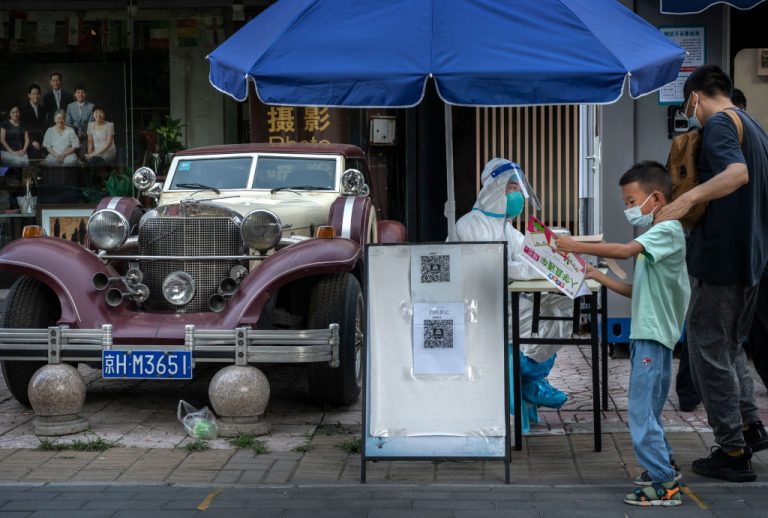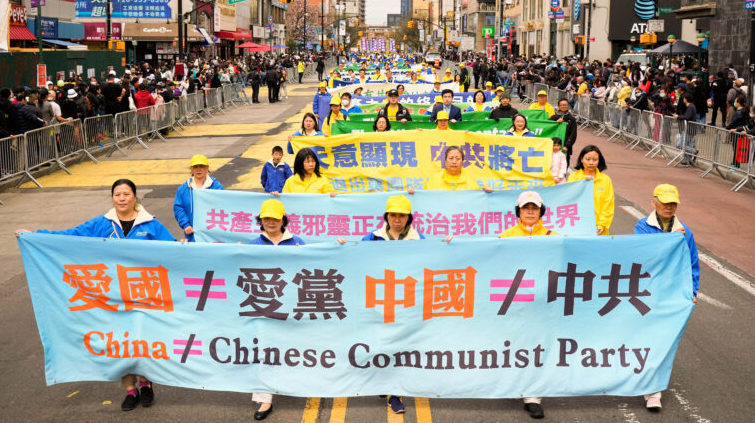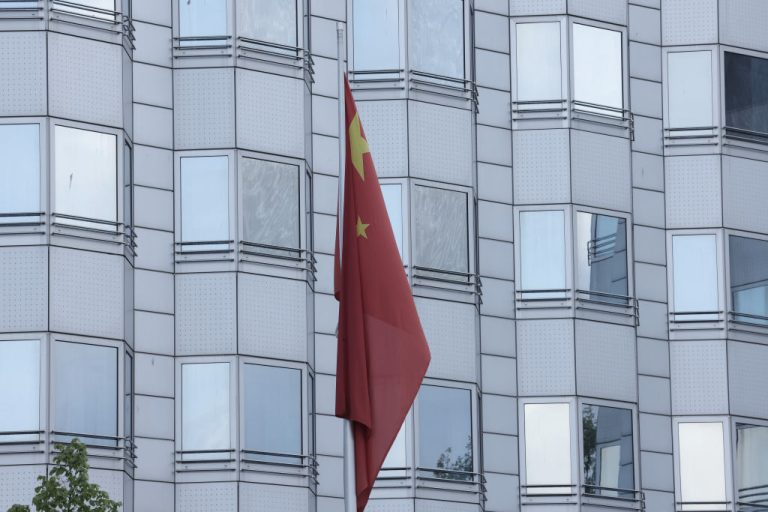In late February, a man named Chen Jian ventured out to Shanghai in hopes of finding a higher-paying job to support himself and his family. After securing a job working part-time at an electronics factory, the Shaanxi native was told after working only about a month that his “work contract had expired,” and he had to resign due to the majority of the factory workers testing positive for COVID-19.
In efforts to minimize contact from factory workers and the general population, authorities in China have unveiled a new “closed loop system” — a system which requires factory staff to travel from on-site accommodation to their workplace and back.
After undergoing some of the strictest lockdown measures ever seen in the world, China’s largest city continues to be held under some degree of restriction — with over half the city still subjected to movement curbs — and mass testing being enforced on approximately 12 million residents.
MORE ON ‘ZERO-COVID’ POLICIES IN CHINA:
- Restaurants in Shanghai Offer ‘Secret Dining’ to Circumvent ‘Zero-COVID’ Policies
- Communist Politics Are Bringing Disaster to China–And Xi Jinping
- China Experiencing Worst Capital Flight in 7 Years, Manufacturers Also Hit Hard
- Hong Kong to Force COVID-19 Patients to Wear a Tracking Device to Ensure They Stay Home
Closed loops, or “factory bubbles,” were first introduced during the Beijing Olympics in early February as a way of keeping athletes and staff separate from the wider population and thereby minimizing the risk of infection.
Shanghai, a key commercial and financial hub, and home to almost 26 million people, has been languishing under the long-term effects of “zero-COVID” as industrial output dips to the lowest levels in decades, and tragic accounts experienced by people forced to quarantine in government-enforced COVID camps are beginning to surface.
Testing positive
Success
You are now signed up for our newsletter
Success
Check your email to complete sign up
After losing his job at the factory, Chen was told that he would be unable to find new employment due to his COVID status having switched to “once tested positive” for the virus.
As a result, Chen said he was sent to a makeshift quarantine camp for 12 days where he was told he would have to undergo several nucleic acid tests in order to confirm he was COVID-free.
In efforts to keep track of every citizen’s health status, every resident in mainland China is currently required to have a mobile phone reflecting their COVID status.
People with green health codes are allowed to travel freely. Those with yellow or red codes are not allowed to visit public places such as supermarkets, gyms, hotels, restaurants, and so on. The affected individual has to then report all close contacts to health authorities, undergo quarantine and several nucleic acid tests before they can be cleared and given a green status again.
On March 25, Chen said his health code status suddenly “turned red,” and he was told by the factory’s upper management to pack up his belongings and be admitted to a COVID quarantine camp.
“It was so overcrowded. I didn’t know the seriousness [of the situation] until then,” Chen said, describing how he lived in the COVID shelter for 12 days under harrowing conditions, and was then told to return to the factory’s dormitory where he resided until the end of May. During this time, he had no income of any kind for 42 days.
“We don’t want anyone who’s been to a COVID camp or tested positive,” Chen was told whenever he tried to apply for work.
Unemployed and homeless
On July 12, Chen told state-run outlet “Tianmu News” that he had been forced to sleep in public parks, inside subway stations and under bridges because he couldn’t find any jobs that would hire him due to his COVID status.
To further complicate matters, many parts of China have been hit with life-threatening heat waves recently — with temperatures reaching over 41°C (105°F) across many densely populated cities. Chen said he couldn’t even bring himself to answer his wife’s video calls because he was so ashamed for his family to see him wandering the streets of Shanghai in these conditions.
Homeless and broke, Chen said he considered giving up and going home. He had even reached out to friends for help in purchasing a train ticket but said that once he arrived at Shanghai’s Hongqiao Railway Station, something came over him and gave him renewed hope in staying put and finding a solution to his woes. Chen returned his train ticket and with the 200 yuan refund (less than $30), set out to find other job opportunities.
Unable to find work
After being rejected from several employment agencies due to his COVID status, Chen said he considered concealing his status in order to find work. However, he said employers were asking to see each person’s “Suizhuan” app — which logs previous nucleic acid test records going back as far as two months.
With only 200 yuan in his pocket, Chen said he could only afford to buy one meal per day and was unable to shower for several weeks. He continued sleeping on park benches and by subway entrances, but sometimes had nowhere to go when it would rain, rendering him cold and miserable.
After days of searching for new unemployment to no avail, a desperate Chen posted his job hunting experience to a popular vlogger’s website on June 10. The post attracted the attention of many netizens who reposted and commented on the dreadful situation currently plaguing many unemployed people in China.
Dejected and exhausted
As of July 13, Chen remains unemployed and continues living in the streets. “I can’t say I’m disappointed in this city. I’m not qualified to say this, because I haven’t been here for a long time, but these experiences are really annoying.” Chen wrote in his post, adding that he has never felt more embarrassed or dejected.
“To stay and struggle or go back home in defeat, that is the question that plagues me,” he wrote.
Chen added that during this harrowing time, he has also encountered many others who had left their hometowns in search of better opportunities in Shanghai only to be rejected by employers due to their COVID status.
“What a cruel joke,” he said.







